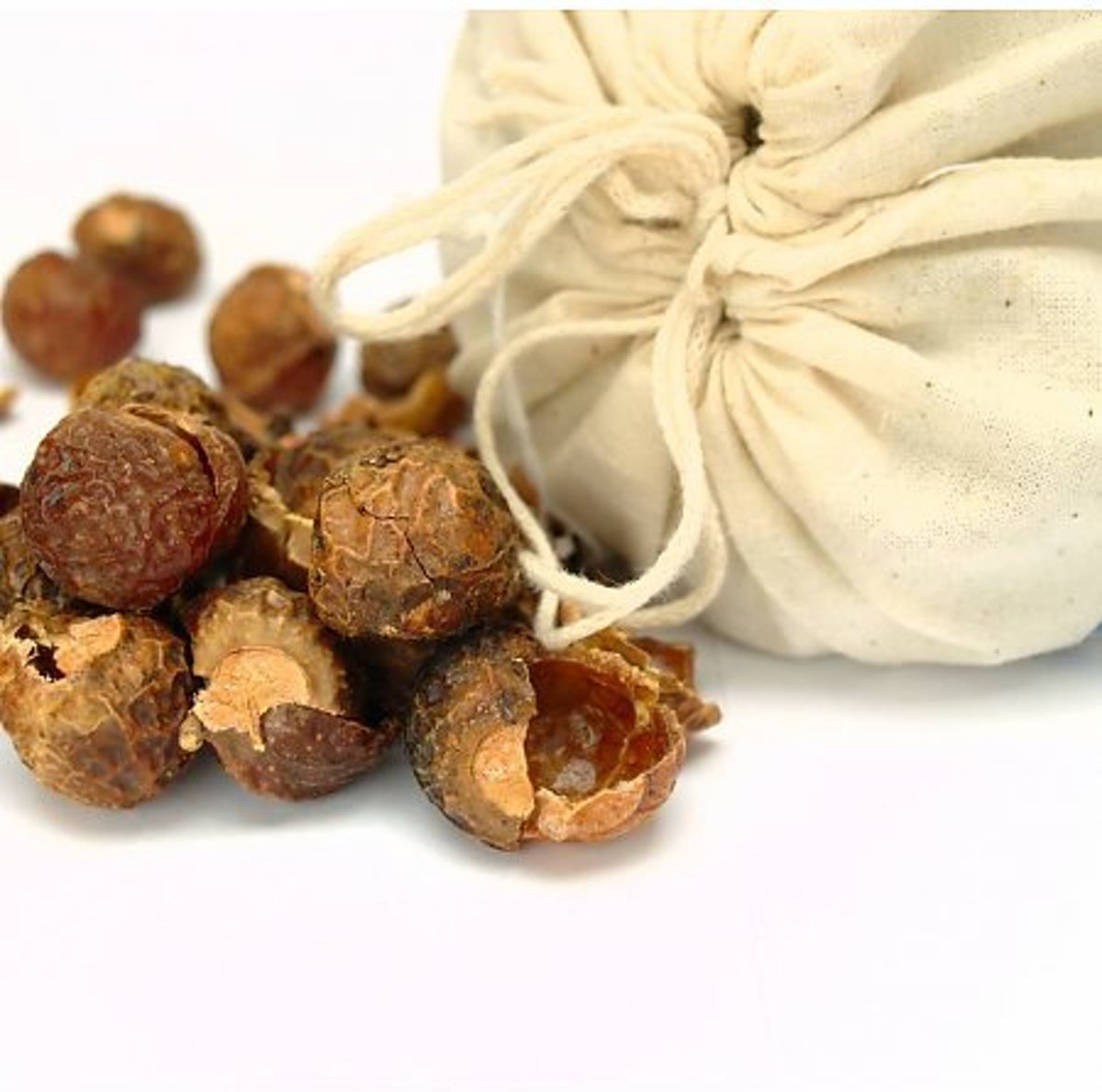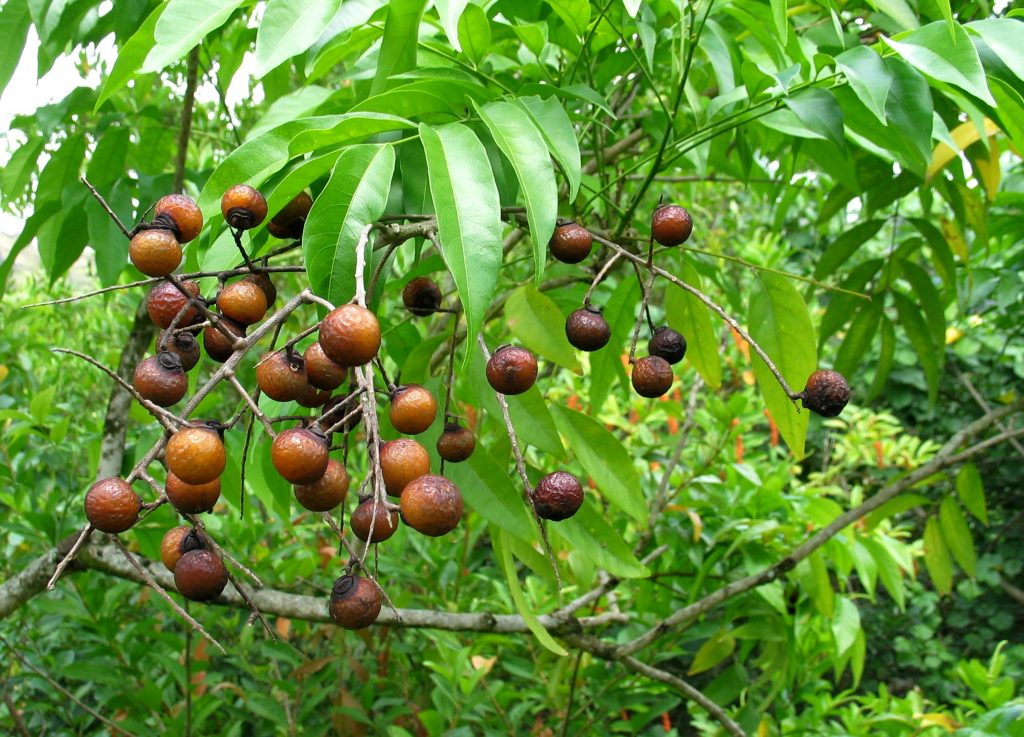
Buying sustainable fashion is important, but to have an ethical wardrobe, it is advisable to maintain one's clothes properly, i.e. in a way that takes the best care of both the clothes and the environment. Meet soapnuts!
Come again?
Soap nuts are the fruits of the Sapindus tree. This name is derived from the Latin word 'sapo' which means soap and 'indus' which stands for India. It is no surprise that these trees are mainly found in South and North India, and in Nepal.
In India, the fruits of the sea nut tree have been used for centuries to do the laundry. And under the growing movement towards a more sustainable lifestyle, they are also becoming more and more common in our regions. But why is that?
Clean laundry without chemicals
One of the special features of soapnuts is that they can be used as an environmentally friendly alternative to synthetic detergents. The brown peels contains a substance called saponin, produced by the Sapindus tree to protect its fruits from insects.
If the nuts come into contact with water, saponin has the same cleansing effect as soap. Saponin is natural and it protects your washing machine and your clothes. Soapnuts are therefore more suitable for people with allergies and sensitive skin.
Why wouldn't you do it?
Soapnuts are convenient and easy to use. Simply put the nuts in a cotton bag and place them in your washing machine. You can compost the nuts after usage. Who said zero waste was difficult?
In contrast to Germany and the Netherlands, the soapnuts are seldom available in our regular shops. Fortunately, many a low impact man and woman now knows the way to stores where well-known brands such as Seepje and Ecozone are available.
Tests have shown that the result is less good for solving grease stains. Some Marseille soap might help. Also, white laundry can become pale after prolonged use. It is therefore advisable to add 1 to 2 tablespoons of soda per wash.
Because the nuts grow solely in tropical or subtropical climates, the transport of Indian soapnuts to Europe is not very ecological. Fortunately, soapnuts are not the only plants that contain saponin. As a more local alternative one can also use ivy leaves, spinach or even peas. It is possible to put them in an old sock and place them into the washing machine. Transport- and cost-efficient!
Have you ever done your laundry with soap nuts? Would you recommend it to others? I am interested in your personal experiences.

